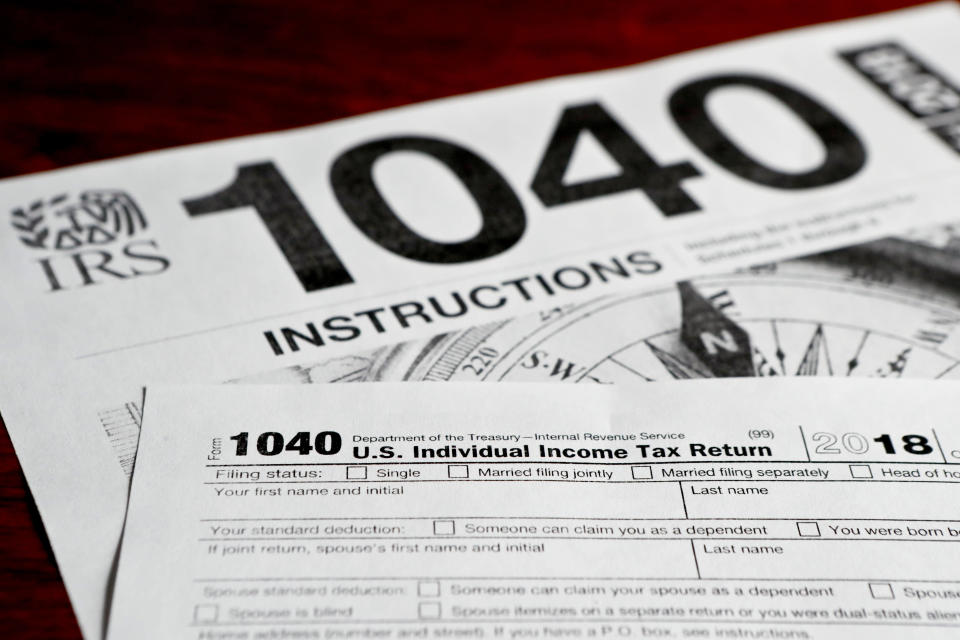Congress may ban the IRS from launching free online tax filing
This week the House passed the Taxpayer First Act of 2019 with bipartisan support, which included a peculiar item: a provision that outlaws the IRS from making taxes easier for millions of Americans.
In many countries, the tax-collecting arm of the government makes things fairly easy, providing pre-populated tax forms and other simplifying features. The IRS, for example, gets forms from employers and knows what should be in the boxes you fill out. For years, TurboTax’s parent company Intuit and H&R Block have lobbied against legislation that would make taxes easier, which might make it less likely for consumers to use those companies’ tax software to file their taxes.
Right now, the IRS Free File Program is the only way the government provides tax preparation software, through a partnership with private industry companies like Intuit. The agreement is set to expire in October 2020.
As Intuit’s 10K itself states: “If the Free File Program were to be terminated and the IRS were to enter the software development and return preparation space, the federal government would become a publicly funded direct competitor of the U.S. tax services industry and of Intuit.”
The bill, co-sponsored by Reps. John Lewis (D-GA) and Mike Kelly (R-PA), is likely to become law, according to Fundstrat Washington Strategist Tom Block – it’s bipartisan and led by the venerable Lewis. However, Block told Yahoo Finance, the Senate does not always like passing narrow tax bills and sometimes holds them so it’s possible it could be held up.

The bill does not contain explicit language outlawing the IRS from simplifying tax preparation, but instead uses language to refer to a memorandum that is already in place, said Mark Luscombe, principal analyst for tax and accounting at Wolters Kluwer.
Essentially, the bill would turn this memorandum and agreement into a law, instead of a looser agreement or a temporary agreement.
“Congress is seeking to formalize the agreement [for the IRS] to not provide free online tax prep software in this statute,” said the Tax Policy Center’s Mark Mazur. (The Tax Policy Center does not take a position on the bill.)
This has happened in the past, but on a temporary basis.
“In prior years, Congress has put similar language in the annual Appropriations bills for the IRS,” he said. “Obviously, this separate statute would be a more permanent prohibition, since the Appropriations language only applies to the year for which the funds are being appropriated.”
Mazur noted that it’s not at all clear as to whether an IRS-created tax software solution would be any better than what exists now — or whether it would be cost effective. “But,” he added,” the proposed law would not give the IRS even a chance to find out.”
In any event, it’s big for tax preparers like Intuit and H&R Block that handle millions of people’s taxes that might be otherwise simplified and doable without professional help. With the passage of this bill, the major risk factor of government competition would be gone.
“[The bill] does benefit paid preparers and software firms,” said Mazur.
-
Ethan Wolff-Mann is a writer at Yahoo Finance focusing on consumer issues, personal finance, retail, airlines, and more. Follow him on Twitter @ewolffmann.